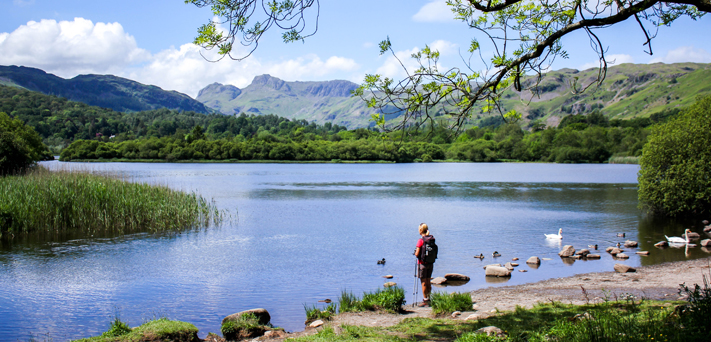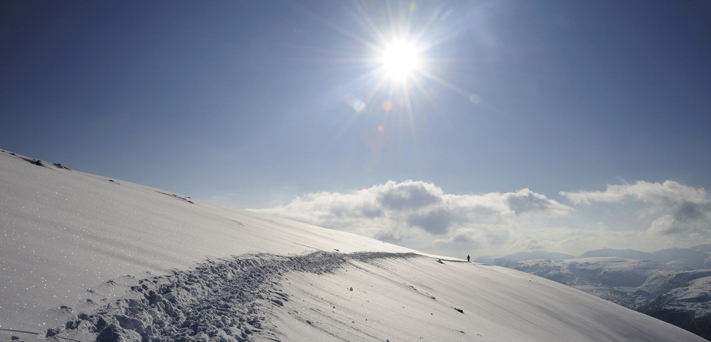Walking in the Lake District is a wonderful activity and is relatively safe. Hiking does, however, carry a risk of injury or worse. You should be aware of, and accept these risks, and be responsible for your actions.
Adequate preparation before you head out to the hills is essential and will reduce the likelihood of an incident. To help you, here are our top tips to help keep you safe. You'll find information on what to take with you on our walking pages.
There are lots of maps, apps, guidebooks, walking magazines and more to help you choose a walk to suit you. Many lower level walks offer spectacular viewpoints and safe walking, in all areas of the National Park. If you’re planning to walk higher up, plan to be off the fell in plenty of time before nightfall.
Tell someone where you are going and leave details of the route of your planned walk and your estimated time of completion. Remember to let them know once you are safely back.
For a hassle-free trip, come with us on a guided walk. We’ve already selected the best routes and you won’t have to worry about route finding. Our expert volunteer guides are experienced hill walkers and go through a thorough training and assessment programme to keep you as safe as possible.

Always check the forecast the day before you set off and again on the day of your walk. Conditions can change dramatically even in a short space of time. Avoid steep and exposed ground if storms and /or high winds are forecast. High rainfall can result in rivers becoming impassable and rocky ground slippery underfoot. All extremes of temperature can be hazardous. Always be prepared to turn back.
Walking in winter can be a serious undertaking and alpine conditions can develop on the higher fells. The British Mountaineering Council (BMC) provides comprehensive advice for hill walkers on their website and in their New Hill Walkers booklet.
'Stay Safe and Enjoy the Fells' (produced by The Lake District Search and Mountain Rescue Association) provides more good advice for hikers.
You can check the forecast and more on our Weatherline service.

There are a few key hazards, apart from weather extremes, you should be aware of. This is not an exhaustive list and more detailed information can be found in specialist hill walking literature and online.
The topography of the Lake District includes smooth U-shaped valleys and steep and sharp ridges, England’s highest mountain and deepest and longest lakes. Be prepared to encounter rough and rugged mountain terrain. See our walking pages for a guide to appropriate footwear.
Find out about walking near livestock in the Countryside Code
If walking through vegetation, check for these tiny insects. Ticks can carry the bacteria responsible for Lyme disease. If not treated early on there could be a severe risk to health. NHS Choices produces guidance on ticks and Lyme disease.
Britain’s only poisonous snake, you’ll be lucky to spot one!
If you do need to call out Mountain Rescue here’s what to do:
Remember to stay where you are until Mountain Rescue contact you. If you have hearing or speech issues you can contact the emergency services by text. You must be registered with emergency SMS. Text 'register' to 999.